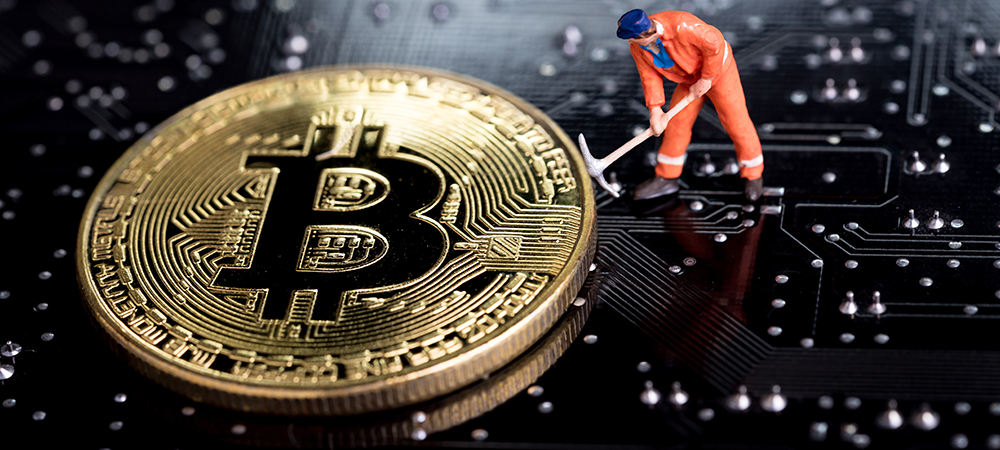GCC countries have the potential to harness this formidable resource to drive economic diversification and by implementing sound policies, raising awareness, and utilising alternative energy sources, they could build a mining sector that supports economic and environmental goals, explains Dr Fadi Alhaddadin at Heriot-Watt University Dubai.
As global interest in cryptocurrency rises, so does the demand for energy-heavy Bitcoin mining operations. Leveraging abundant energy resources, forward-thinking leadership, and an increasingly digital economy, GCC countries like the United Arab Emirates are positioning themselves as potential hubs for Bitcoin and crypto mining.
For GCC economies, Bitcoin mining presents a valuable opportunity to reduce oil dependency. Gradually, these countries are shifting towards digital and knowledge-based economies and incorporating activities like crypto mining that aligns well with this vision.
By utilising cryptocurrency mining opportunities, Gulf countries can attract foreign direct investment, grow their digital economies, and diversify their income sources while making the most of their infrastructure and abundant energy resources.
The UAE has proactively fostered crypto adoption and development through several strategic initiatives. Abu Dhabi Global Market and Dubai Multi Commodities Centre have introduced policies that support crypto activities, and in 2023, the Dubai Financial Services Authority rolled out regulatory frameworks to enable digital asset trading.
Additionally, Binance’s collaboration with Dubai’s Virtual Assets Regulatory Authority, VARA further reinforces the nation’s commitment to crypto growth. These steps underscore the UAE’s ambition to become a global hub for cryptocurrency, with Bitcoin mining poised to play a significant role in the broader crypto economy.
Saudi Arabia is also seeking to invest in blockchain and cryptocurrency projects, as part of its Vision 2030 agenda to diversify the Kingdom’s economy beyond oil. A centre for Bitcoin mining would, therefore, align well with this vision, leveraging Saudi Arabia’s affordable energy resources to boost the country’s digital economy.
The GCC countries are making significant strides in adopting renewable energy sources, which is critical for the sustainability of Bitcoin mining. The UAE, for example, initiated the construction of Mohammed bin Rashid Al Maktoum Solar Park, which is anticipated to produce a capacity of 5,000 MW by 2030.
This renewable energy capacity is expected to help power Bitcoin mining operations sustainably and help the GCC nations lower carbon emissions. Oman has also rolled out plans to develop large-scale green hydrogen projects, which could fuel sustainable mining practices in the future.
With environmental concerns associated with crypto mining, the UAE’s shift toward renewable-powered mining may set the region apart from other global mining centres. Potential investors who are becoming more environmentally conscious may also make the region an appealing site for crypto mining projects.
It is worth noting that the legal stance on Bitcoin mining is still being formalised across the globe, and volatility remains a major concern in the GCC countries. However, the GCC can maximise its potential as a favourable jurisdiction for crypto by guaranteeing well-defined, coherent and enforceable laws, especially when certain countries are prohibiting or limiting activities that are associated with crypto assets.
The UAE has established a strong regulatory foundation for virtual assets. Dubai-based VARA, the first independent virtual assets regulator globally, sets a standard other nation may look to follow. Beyond creating favourable regulations, however, it is essential that governments also enforce well-regulated mining practices to prevent issues such as money laundering or tax evasion. Promoting transparency in this way will enhance the appeal of GCC states as secure and reputable crypto hubs.
Despite VARA’s proactive measures, there is still a lack of clear regulations in the other member states of the GCC. For example, although Saudi Arabia has an interest in blockchain and digital assets, it has been quite cautious in implementing a comprehensive regulatory framework for crypto. Regulatory consistency within the GCC area would contribute to a conducive environment for long-term investments in crypto mining infrastructure.
It is a well-known fact that Bitcoin mining is quite energy-intensive, accounting for 0.5% of the global electricity consumption, which is comparable to Sweden’s total electricity usage. While the energy-rich Gulf states possess ample energy reserves, excessive amounts spent on Bitcoin mining could add to the ecological concerns of the region and prevent the GCC nations from reaching their decarbonisation goals.
To mitigate these risks, the UAE and other GCC countries could provide favourable mining conditions by leveraging sustainable sources of energy such as solar and green hydrogen or explore the use of otherwise wasted energy such as gas flared in oil fields to fuel mining operations. Qatar has been looking into similar options, utilising flared gas for electricity generation, which could potentially be extended to support mining efforts.
Integrating blockchain and crypto mining with existing infrastructure projects can lead to unique innovations in the GCC. In Dubai, for example, blockchain applications are already being explored to optimise water desalination processes, a vital but energy-intensive operation in the region. To further enhance efficiency, the cryptocurrency ecosystem could collaborate with water desalination and data centre projects, optimising resource use by preventing isolated operations.
Countries such as the UAE and Saudi Arabia, with abundant sources of energy, and a forward-looking regulatory framework together with a growing digital architecture, are well-positioned to take advantage of the opportunities presented by the Bitcoin mining process in a sustainable manner.




